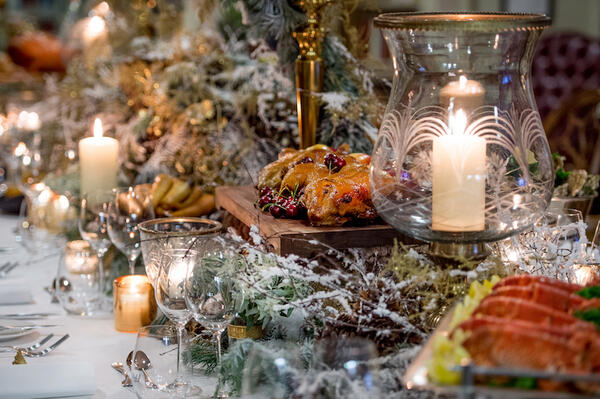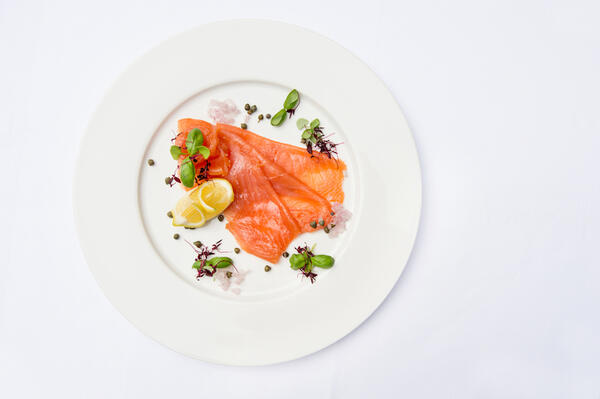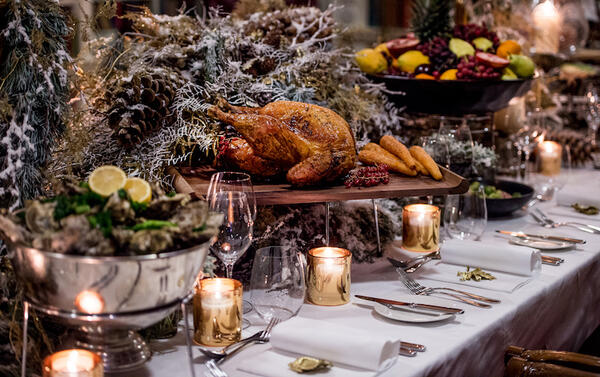Blog (Festive food and wine pairing)
A lot is written about food and wine pairing – and it can be confusing. In addition, it doesn’t take into account the fact that we’ve all got very different palates. One person’s heavenly match might be merely ordinary for another.
That’s why, when I talk about matching food with wine, I like to keep it simple. My main rule is this: match the richness of the food with the richness (or body) of the wine. This ensures that one doesn’t dominate the other, whilst allowing you great freedom to experiment with different flavour combinations and cater to your own personal tastes.
So how does this apply to classic Christmas fare?
Starter-wise, we all go for something different at Christmas, but smoked salmon features regularly. My personal favourite with smoked salmon is a subtly oaked Chardonnay, either from the New World or Burgundy. The smooth texture of the Chardonnay is a perfect match for the oiliness of the fish, and the oak notes complement the oak-smoked notes of the salmon too. If you’re splashing out, go for a top-end Puligny-Montrachet or Meursault. Alternatively a more everyday Chardonnay from the Mâconnais or New Zealand will do the trick nicely. And if you really can’t stand oak in your wine, then look out for an unoaked version as the texture will still work. Delicious. If you’re having a lighter starter then adjust the style of the wine accordingly – my favourite for a light seafood dish like lemon sole would be a Sancerre or even a Spanish Verdejo for something a little different.
Pair salmon with a smooth oaked Chardonnay
When it comes to the turkey, there is a lot of debate surrounding the perfect match! It does of course depend how the turkey is cooked and what accompaniments are with it. The basic rule is this: the creamier and fattier the sauces/gravy/side dishes, the fuller-bodied a wine you can choose. For white wine lovers, once again an oaky Chardonnay would do the trick – or if you really can’t stand that and want to drink something special, try looking out for a white Rhône wine like Condrieu or the rare white Châteauneuf-du-Pape for their smooth, viscous palates and elegant floral notes. For red wine aficionados, there’s a huge choice. As turkey meat is very lean, if I were having it on its own I’d be going for a Pinot Noir, probably a classic Red Burgundy, but if served with richer accompaniments then I’d be going up in body, and would suggest a spicy red Rioja or savoury red Bordeaux. If you’re a vegetarian, you can still enjoy any of these wines – just think about how much richness is in your dish.
A classic red Burgundy is a perfect match for turkey
In the McHale household we often eschew turkey and go for something a little different in the form of a game bird roast (e.g. partridge, pheasant and duck). The stronger flavours of game allow for a fuller-bodied wine, and I frequently have us drinking a fine red Rhône – Châteauneuf-du-Pape is of course classic, but if you want to seek out a lesser-known name to get great value, try a Vacqueyras or a Gigondas for that same ripe yet savoury quality. And if you’re a lover of the old favourites Malbec or Shiraz, those will work nicely with game too!
When it comes to pudding, I have my firm favourites. Christmas pudding is rich and laden with dried fruit, nut and brandy flavours. If you want to mirror the pudding completely, there is no better pairing than a really good cream Sherry – not the stuff your granny used to drink, but a premium one like East India from Lustau. This really is Christmas in a glass. Another gorgeous match with Christmas pudding is a silky, nutty, caramelized 20 year old Tawny Port – you can buy great ones from all the big names.
Anne McHale, Master of Wine and the Doyle Collection's wine consultant
Hopefully that helps you to sift through the confusion! And remember, the main joy to be found from food and wine matching is trying out different combinations to see what works for you. So don’t be afraid to experiment.
Merry Christmas!



